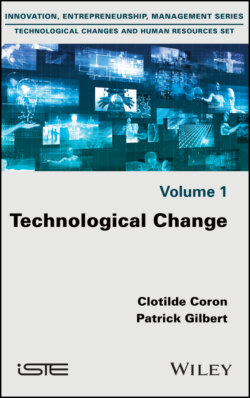Читать книгу Technological Change - Clotilde Coron - Страница 27
I.2.2.7 Multidisciplinary authors and interdisciplinary human and social sciences
ОглавлениеClassifying authors by discipline is not always easy (Table I.1), as a common feature of many of those who have been interested in technology is that they are curious minds, whose contributions are not limited to a disciplinary field. Let us take a few examples, among the well-known personalities, without claiming to be exhaustive. First, we will see philosophers. Simondon was also a psychologist – he taught psychology for a dozen years – and Dagognet did work in the history of science. And now, we will see sociologists. Friedmann, a philosopher by training, is best known as a sociologist of work who has always sought to maintain the link between sociology and humanist philosophy, just as Gurvitch has nourished his work with a philosophy of society. Finally, where should Karl Marx, whose work covered economics, philosophy and sociology, be included?
Table I.1. Contributions of the humanities and social sciences
| Discipline | Consideration | Subject of study |
| History | Technologies and their development | Genealogy of the appearance and dissemination of technical achievements |
| Philosophy | The meaning of technologies for humanity | Nature of the technology Value of technology for humanity |
| Anthropology | The uses and roles of technical objects | Material culture Technical innovation and societal transformations |
| Sociology | Social groups, technology and their interactions | Technical power, technical democracy Perceptions and social influences of technology Mediation and communication methods |
| Economic sciences | Production, trade and consumption of goods and services | Relationship between technology and economics Effects of technological progress on employment |
| Psychology | Individual and collective conduct at work in a technical environment | Attitudes, learning, satisfaction, adaptation, acceptance of new technical objects Productive activity and technical mediations |
Apart from the disciplinary contributions mentioned above, there are object-oriented sciences that involve several source disciplines, such as information and communication sciences, the purpose of which is the study of communication and for which communication is rather an object of interdisciplinary knowledge. The management sciences, which aim at the instrumental regulation of organized collective activities, have made some contributions, albeit still limited, to the question of technology. It is precisely to the task of reducing this gap that this book would like to contribute.
